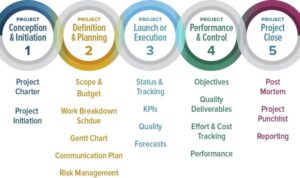Leadership Development sets the stage for organizational triumph, showcasing the impact of effective programs on morale and productivity. Dive into the world of essential skills, mentorship, and strategies that drive success.
Importance of Leadership Development

Leadership development is crucial for organizational success as it helps in cultivating a strong and effective leadership team that can guide the company towards its goals. Effective leadership development programs can have a significant impact on employee morale and productivity, leading to a more engaged and motivated workforce. When employees feel supported by their leaders and are provided with the necessary tools and resources to succeed, they are more likely to perform at their best and contribute positively to the organization.
Enhanced Employee Morale
- Empowers employees to take on leadership roles
- Creates a positive work culture and sense of belonging
- Encourages open communication and feedback
Increased Productivity
- Aligns team goals with organizational objectives
- Fosters innovation and creativity
- Improves decision-making and problem-solving skills
Long-Term Benefits for Companies
- Reduces employee turnover and increases retention rates
- Builds a pipeline of future leaders within the organization
- Enhances the company’s reputation and attracts top talent
Key Components of Leadership Development Programs
Leadership development programs are designed to equip individuals with the necessary skills to become effective leaders in various settings. These programs focus on developing essential skills that are crucial for successful leadership roles.
Essential Skills in Leadership Development
- Effective Communication: Leaders must be able to clearly articulate their ideas, listen actively, and provide feedback to their team members.
- Decision-Making: Developing the ability to make timely and informed decisions is essential for effective leadership.
- Problem-Solving: Leaders should be equipped to identify challenges, analyze root causes, and develop creative solutions.
- Strategic Thinking: Understanding the bigger picture and aligning organizational goals with actions is crucial for leadership success.
Role of Mentorship and Coaching
Mentorship and coaching play a vital role in leadership development by providing personalized guidance, feedback, and support to aspiring leaders. Mentors and coaches help individuals identify their strengths, areas for improvement, and provide valuable insights based on their own experiences.
Self-Awareness, Emotional Intelligence, and Communication Skills
- Self-Awareness: Leaders who are self-aware understand their strengths, weaknesses, and values, allowing them to make better decisions and lead authentically.
- Emotional Intelligence: Being able to recognize, understand, and manage emotions in oneself and others is crucial for effective leadership and building strong relationships.
- Communication Skills: Leaders must be able to communicate clearly, empathetically, and persuasively to motivate and inspire their team members.
Strategies for Implementing Leadership Development Initiatives
Implementing successful leadership development initiatives requires careful planning and execution. Organizations must align these programs with their goals and values to ensure effectiveness. Measuring the impact of leadership development initiatives is also crucial to determine their success.
Aligning Leadership Development with Organizational Goals and Values
Organizations should start by clearly defining their goals and values. This involves identifying the key areas where leadership development can contribute to achieving these objectives. By aligning leadership development initiatives with organizational goals and values, companies can ensure that their leaders are equipped to drive success in the desired direction.
- Ensure that leadership development programs address specific competencies and skills needed to support organizational objectives.
- Integrate leadership development into the overall strategic plan of the organization to create synergy between leadership development and business goals.
- Communicate the importance of leadership development in relation to organizational values to reinforce its significance among employees.
Measuring the Effectiveness of Leadership Development Initiatives
Measuring the impact of leadership development initiatives is essential to track progress and identify areas for improvement. Organizations can use various methods to evaluate the effectiveness of their programs.
- Implement feedback mechanisms to gather insights from program participants, mentors, and supervisors regarding the impact of leadership development initiatives.
- Establish key performance indicators (KPIs) related to leadership development, such as employee engagement, retention rates, and leadership competency assessments.
- Conduct regular assessments and evaluations to track the progress of leaders who have participated in development programs and adjust strategies accordingly.
Challenges in Leadership Development

Implementing leadership development programs can be challenging for companies due to various obstacles that may arise. From resistance within the organization to a lack of diversity and inclusion, these challenges can hinder the effectiveness of leadership development initiatives.
Resistance to Leadership Development Initiatives
- Some employees may resist leadership development programs due to fear of change or feeling threatened by potential shifts in power dynamics.
- Leadership development initiatives may be seen as an additional burden on already busy employees, leading to resistance and lack of engagement.
- Resistance can also stem from a lack of understanding of the benefits of leadership development and its impact on individual and organizational growth.
Lack of Diversity and Inclusion, Leadership Development
- A lack of diversity and inclusion in leadership development programs can limit the perspectives and experiences that contribute to effective leadership.
- Without diversity, organizations may struggle to address the needs of a diverse workforce and miss out on innovative ideas and solutions.
- Inclusive leadership development programs can help create a more welcoming and supportive environment for all employees, leading to better overall performance and success.





